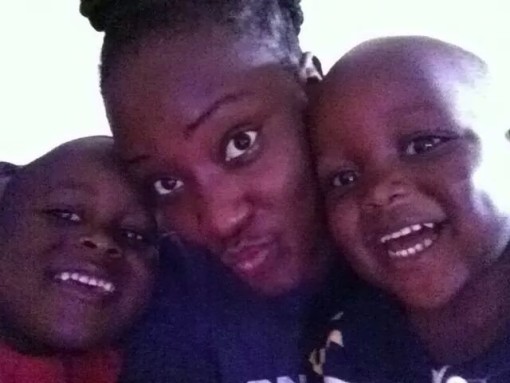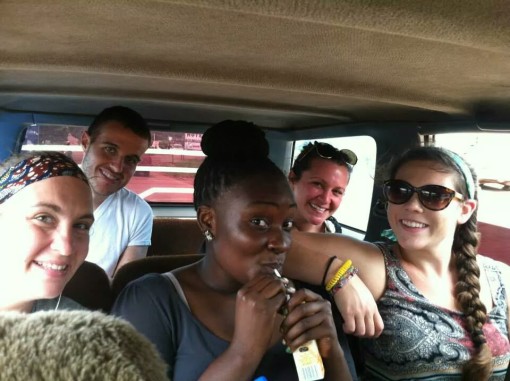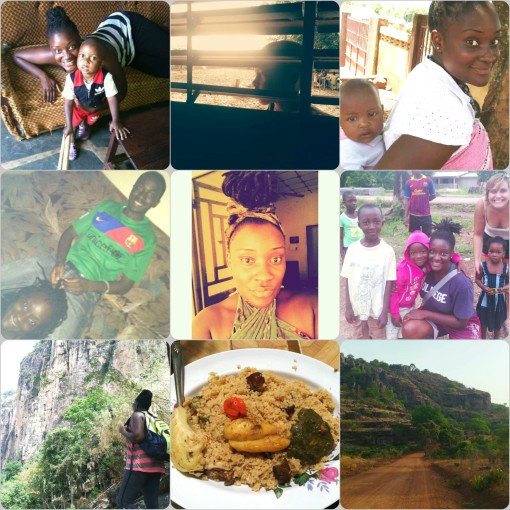Carla’s story interestingly explains how her experiences in Liberia as a student and living in South Korea lead her to become Peace Corps. Check out more below on living in west Africa!
1. Please introduce yourself
“My name is Carla Camille Whyte and I am a Brooklyn native. I studied Sociology during my undergraduate years at Lehman College, one of the senior colleges of the City University of New York and earned a Bachelor of Arts in Sociology in 2010.”
2. What sparked your interest in joining the Peace Corps?
Immediately after graduating from Lehman College, I traveled to Liberia in West Africa for a three month internship where I worked on a consulting basis with the Senior Minister of Education. My responsibilities involved working with the Early Childhood Education group to facilitate trainings geared at teaching pedagogy to Early Childhood teachers. In addition I worked with another consultant to identify deficiencies within the Ministry and worked on a strategic plan to address those deficiencies. While traveling to Liberia’s countryside for a four day staff retreat and professional development training, I received my first opportunity to get out of the city of Monrovia and see some of the most beautiful landscapes and nature that I had ever seen in my life. I pretty much decided in those four days that there was significantly more beauty to the African continent and that I wanted to see as much as of it as possible. Enter Peace Corps.
I learned about Peace Corps through a returned volunteer who spoke on a panel organized by the same organization that arranged my trip to Liberia. She had served in Costa Rica as a youth development volunteer and everything about her experience spoke to me. It took me a while to build up the courage to start my Peace Corps application and then finally submit it. I knew that Peace Corps would be a guaranteed vehicle in terms of bringing me back to the continent of Africa with the support I would need to still function (monthly guaranteed salary, health insurance, housing) daily while getting grassroots experience working with youth and being exposed to another culture. I also knew that I wanted to go to graduate school but had no idea what program I would apply for and felt like my Peace Corps experience would help to inform my decision on what graduate program I selected. The benefits that come with the Coverdell Fellows Program were also very enticing.
3. As black American traveler, what advice would you give to others inspired to join the Peace Corps but afraid to take the first step?
Go. The world is waiting for us. In general, most people I came across were surprised to learn that I was black AND American. From South Korea to the Emirates to Guinea, folks were always surprised and would sometimes ask follow-up questions with regards to where my parents were from or whether I was born elsewhere but raised in the States (a thing that was never to done to white foreigners from what I witnessed) because the idea that I could be both was slightly flabbergasting for them. That’s a bigger testament to the fact that once you step outside of America, people’s beliefs about black and people and experiences with black people are limited. Often times the images that people see on television are what they associate with black people and even though they know, via television that there are black people in America, they have no idea about the Black experience in America.
As a Peace Corps volunteer (and while working for any other NGO or while simply traveling abroad), whether we like it or not we are ambassadors for our country. People do pay attention to the things you say, do, eat, etc and when you’re black, people seem to be a little bit more curious because the amount of black American travelers who are just globe trotting for fun or working with a fancy NGO are few and far between. In Korea people always thought instinctively that I was Nigerian and that I worked as a hair braider or something like that because there actually was a community of Nigerians in Seoul, Korea doing things like hair braiding, etc to make a living. But that’s not the only narrative for us black people. And I think the more that black people decide to travel and see the world like many of our white counterparts, for example, we can change that narrative. Why are they the “normal”? Why are we the “deviants”? We have a story to tell too and America is not just “the white people’s place”. It was built on the backs of Africans for crying out loud. So go …see the world….do what we were never meant to do even though our ancestors are the ones who created the economy that has enabled America to be the nation that it is….
4. What is the most interesting experience you’ve had in the countries you’ve served:
Trying to explain to a Guinean, the normalcy of this idea of “independence” and “capitalism”; it’s hard to explain. So much of the culture is grounded in brotherhood, family, compassion, etc..and it’s a pre-dominantly Muslim country ..one of the pillars of Islam is “giving” or “supporting the needy” …so even when people may not have everything, they will still give to someone who has nothing. The idea of capitalism is mind-boggling for some as a result: how can you sit by eating shrimp scampi for example while a homeless person is outside cold and hungry and it not bother you? They thought it was INSANE.
The family unit is also extremely important in West African culture and marriage is a highly sacred (in theory) ritual as it’s the medium through which families and created – large families equals wealth. So explaining to my Guinean friends that I was a 25 year old woman with no husband, no fiance, no boyfriend, no children and no prospects was mind boggling. They thought I was crazy for not wanting a man and wanting to go back to school to further my education with no solid plan for how I would find a husband. “You must not want one” they would say to me ..because I was not “putting it into my plan”. I would say “you can not plan to meet the person you’ll fall in love with” …but the concept of falling madly in love with someone was also difficult for some folks to wrap their heads around. “No one is perfect” my math teacher colleague would say to me constantly. “If you wait all your life for the person who will have you head over heels, you will die alone..that person doesn’t exist”.
5. How did people in your Peace Corps country react when you told them you were a PCV?
Surprised. For sure. “But you’re black…” …yeah it was annoying. I had a rough time with it for a while but eventually just got too tired to explaining myself and thanked God that my darker skin made me less of a target for petty theft. Hey ..whatever works.
6. Where can people get in touch with you if they have any questions (Leave your social media info and blog link if you’d like!)
Email: whyte.carlac@gmailcom
Instagram: @luvslethal_bro
Blog: carlacou/tumblr.com
(for excerpts from my Peace Corps service)



Hi Tamara, I used to get that all the time. “You’re American, but where are you really from?”. Fortunately that changed once Obama was elected as president
Haha! Still get it all the time in Botswana!